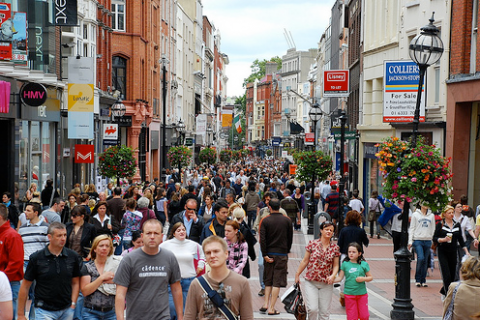Choices remain for salvation of the State

If those with means forgo a new car and holiday and pay into State coffers, the poor could be spared and the fiscal hole dramatically reduced, writes Vincent Browne.
We still have choices on how to manage our affairs, important choices, choices that define where we are at politically.
Most of us do not know what leeway there is for the Government in the renegotiation of the EU-IMF memorandum of understanding of 28 November, 2010.
Nor do we know what the full consequences may be of defaulting on that contract entered into by our State (not just the government of the day) with these institutions.
Nor the consequences of defaulting on guarantees the State gave to senior bondholders and others via the bank guarantee.
But there are some choices left to us on this banking business.
There are the bondholders not covered by the guarantee, including the senior bondholders, who are owed €19 billion for senior bonds unguaranteed and secured on assets, and a further €16.4 billion of senior bonds unsecured – a total of €35.4 billion.
This compares with €21 billion in guaranteed senior bonds. This raises the question of what obligation the State has to the €35.4 billion unguaranteed bondholders and the answer would appear to be zero, except...
Except, under company law and EU directives, it is not possible to discriminate between creditors that share the same level of security. So it may not be possible to favour bondholders covered by the bank guarantee over bondholders not covered by the bank guarantee, where they share the same status as creditors (some creditors have a higher status than others because some are secured against particular assets while others are not).
But even given this legal complexity, there must surely be some room for manoeuvre by, for instance, threatening to allow the banks to go into liquidation (as should have happened on 29 September, 2008).
This threat could be used to cut a deal with all the €35.4 billion bondholders not covered by the guarantee, by paying them, say, 10 cents in the euro, ie €3.5 billion.
I am not sure that this would work, however. But there is another less ambiguous realm of choice: whether to have those of us with more wealth pay all of the costs of the crisis, or whether the pain should be spread, which is a synonym for saying the poor have to pay and inequality must be deepened.
There is this fiscal hole of €19 billion which, after this year, will presumably be around €13 billion, to be reduced to €5 billion by 2015.
John Bruton was saying in New York over the last few days that there is plenty of money in Ireland, it's just people with the money now want to save it, rather than spend it and stimulate the economy.
It is not true that nobody is spending money.
In 2010 there were 84,907 new cars licensed for the first time, a 56 per cent increase on the admittedly relatively low number for 2009 (there were 180,754 new private cars bought in 2007). But how is it if we are all broke that around 85,000 people were able to buy a new private car for themselves?
And these were no bangers. There were 6,196 BMWs sold, 3,335 Mercedes, along with 15,468 Fords and 10,863 Renaults (according to the CSO).
The average cost per car, excluding taxes, is probably around €10,000, which comes out at close to a €1 billion, just for new private cars, for the most part an entirely deferrable purchase.
There were around 6.5 million trips taken by Irish people to foreign countries in 2010.
Say half of these were for business purposes or for other necessary travel. This leaves around 3.25 million trips. On average €1,000 each? About €3 billion in total.
What would be so bad if, instead of buying a new car in 2011 and deferring non-essential trips abroad for a year, those who would otherwise buy cars and take non-essential trips abroad, paid €4 billion into our collective coffers?
And what would be so bad if, for instance, the old age pension were doubled to around €400 a week (€20,000 a year), at an extra cost of €3.5 billion and if all tax breaks for private pensions were removed at a saving of around €3 billion a year?
And if, in addition, all public service pensions were terminated, at a saving of another €3 billion, a net gain of
€2.5 billion, with everyone being treated equally?
Yes, public servant pensioners would not like it but why should they be paid more than other pensioners?
And what would be so bad if there were further reductions in public service pay to save a further €1 billion, with nobody earning less than €40,000 being affected? And a further €1 billion in income tax on incomes over €150,000 a year and yet another €1 billion on incomes over €80,000 a year?
Even at the worst, we can still get by and, along the way, make this a better place as well!
